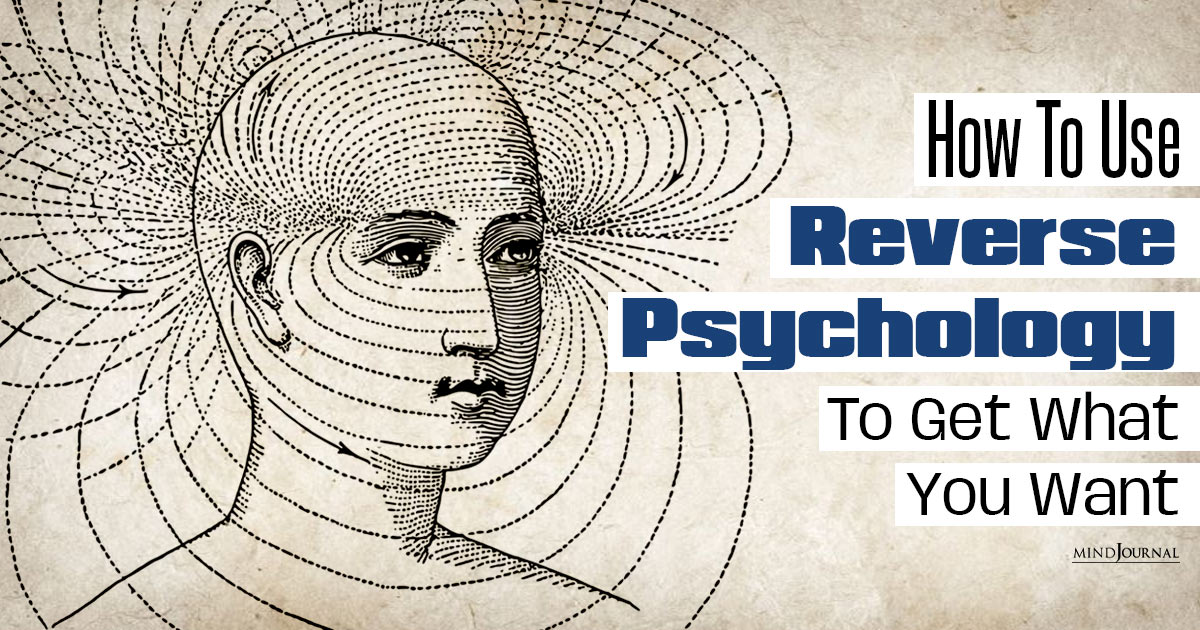Have you ever wondered about the vast potential of the human mind and the mysteries of consciousness? Are you curious about the deeper aspects of the self and the profound connection between individuals and the world around them? If so, then it is time to explore what is transpersonal psychology as it might hold the answers you seek.
So, fasten your seatbelts as we delve into the depths of the human psyche and embark on an extraordinary voyage of self-discovery and growth as we embark on a fascinating journey into the realm of transpersonal psychology
What is Transpersonal Psychology?
Transpersonal psychology is a branch of psychology that explores the spiritual and transcendent aspects of human existence.
It goes beyond the confines of traditional psychology, which focuses primarily on the individual’s personal experiences and behavior. Transpersonal psychology acknowledges that human beings are not just isolated entities, but interconnected beings with a profound connection to the universe and the collective consciousness.
Related: The Science Of Spirituality: How Are Science And Spirituality Related?
At its core, transpersonal psychology seeks to understand and integrate the full range of human experiences, including mystical, spiritual, and transcendent states of consciousness.
It embraces the notion that there is more to human existence than what meets the eye, and that exploring these deeper dimensions can lead to personal growth, transformation, and a greater sense of purpose.

The Evolution of Transpersonal Psychology
Transpersonal psychology emerged as a distinct field in the 1960s, influenced by the groundbreaking work of psychologists such as Abraham Maslow, Stanislav Grof, and Ken Wilber.
These pioneers recognized the limitations of traditional psychology in addressing the higher aspects of human nature and sought to bridge the gap between psychology and spirituality.
Over the years, transpersonal psychology has evolved and incorporated insights from various spiritual traditions, philosophy, neuroscience, and other scientific disciplines. It has gained recognition as a valuable approach to understanding human consciousness and promoting holistic well-being.
Key Principles of Transpersonal Psychology
Here are some of the primary aspects and principles that we must explore when trying to understand what is transpersonal psychology –
1. Expanded Sense of Identity
Transpersonal psychology recognizes that our sense of self extends beyond our individual ego. It acknowledges the existence of a higher self or transpersonal self that transcends personal boundaries and connects us to something greater than ourselves.
This expanded sense of identity allows individuals to tap into their inner wisdom, intuition, and spiritual potential.
2. Spiritual Awakening and Transformation
Transpersonal psychology acknowledges that spiritual experiences and transformations can profoundly impact an individual’s life.
These experiences can include moments of awe, transcendence, mystical union, or a deep sense of interconnectedness with all living beings. Such experiences can catalyze personal growth, self-transcendence, and a greater sense of meaning and purpose.
3. Integration of the Shadow
The shadow refers to the unconscious aspects of our personality that we repress or deny. Transpersonal psychology emphasizes the importance of embracing and integrating these shadow elements to achieve psychological wholeness.
By acknowledging and integrating our shadow aspects, we can cultivate greater self-awareness, authenticity, and compassion towards ourselves and others.
Related: What Is A Psychonaut? Uncovering The World Of Mind Explorers
4. Transcending Dualities
Transpersonal psychology encourages individuals to move beyond dualistic thinking and embrace a more inclusive and holistic perspective. It recognizes that there is a unity underlying the apparent diversity of existence and encourages individuals to cultivate a sense of oneness with all of creation.
This shift in perception can lead to a profound shift in consciousness and a deepening of one’s spiritual connection.

Techniques and Practices in Transpersonal Psychology
Understanding what is transpersonal psychology helps us realize that this discipline encompasses a variety of techniques and practices that facilitate personal growth, self-discovery, and spiritual development. Some of these include:
1. Meditation and Mindfulness
Practices such as meditation and mindfulness can help individuals cultivate present-moment awareness, enhance self-reflection, and connect with their inner selves. These practices promote a sense of calm, clarity, and self-transcendence.
2. Breathwork
Breathwork techniques involve conscious control of breathing patterns to induce altered states of consciousness. This can lead to profound insights, emotional release, and spiritual experiences.
3. Guided Imagery and Visualization
Guided imagery and visualization techniques engage the power of the imagination to explore inner landscapes, access inner wisdom, and facilitate healing and transformation.
4. Shamanic Practices
Shamanic practices draw upon ancient wisdom traditions to facilitate healing, soul retrieval, and connection with the spirit world. These practices often involve the use of rituals, ceremony, and the exploration of altered states of consciousness.
Now that we know what is transpersonal psychology, let’s explore some of the applications of this discipline.
Applications of Transpersonal Psychology
Transpersonal psychology has a wide range of applications across various domains, including therapy, education, leadership development, and personal growth. Some of the applications include:
1. Transpersonal Psychotherapy
Transpersonal psychotherapy integrates traditional therapeutic approaches with transpersonal principles to facilitate healing, personal growth, and spiritual development. It can help individuals overcome psychological challenges, explore existential questions, and cultivate a deeper sense of self-awareness and purpose.
2. Consciousness Studies
Transpersonal psychology contributes to the field of consciousness studies by exploring altered states of consciousness and the nature of human awareness. It sheds light on the mysteries of the mind and consciousness, offering valuable insights into the nature of reality and our place within it.
3. Spiritual and Personal Development
Transpersonal psychology provides a framework for individuals to embark on a journey of self-discovery, self-transcendence, and personal growth. It offers tools and practices to deepen one’s spiritual connection, cultivate inner wisdom, and navigate life’s challenges with resilience and clarity.
Related: What Is Spiritual Depression And How Do You Recover From It
4.Transpersonal Education
When you know what is transpersonal psychology, you realize that it can be applied in the realm of education to foster holistic learning and development. It recognizes the importance of nurturing not only intellectual growth but also emotional, social, and spiritual well-being.
Transpersonal education aims to cultivate compassionate, creative, and conscious individuals who can contribute meaningfully to society.

Criticisms and Limitations
Like any field of study, transpersonal psychology has its critics and limitations. Some common criticisms include:
1. Lack of Empirical Evidence
Critics argue that transpersonal psychology relies heavily on subjective experiences and lacks empirical evidence to support its claims. They suggest that more rigorous scientific research is needed to validate its theories and practices.
2. Potential for Misinterpretation
Transpersonal experiences can be highly subjective and deeply personal. Critics raise concerns about the potential for misinterpretation, delusion, or the manipulation of vulnerable individuals in the pursuit of spiritual experiences.
3. Cultural and Religious Sensitivity
Transpersonal psychology draws inspiration from various spiritual traditions and practices. Critics argue that it is essential to approach these traditions with cultural sensitivity and avoid appropriating or diluting their teachings.
It is important to acknowledge these criticisms and engage in ongoing dialogue and research to refine and strengthen the field of transpersonal psychology.
How transpersonal psychology contributes to personal growth and self-transcendence
One of the core aspects of understanding “what is transpersonal psychology?” is exploring how it helps in our self-development.
Transpersonal psychology plays a significant role in promoting personal growth and self-transcendence by encouraging individuals to explore the deeper aspects of their being and adopt a broader perspective on human existence.
Here are key ways in which transpersonal psychology contributes to this transformative journey:
1. Expansion of Identity
Transpersonal psychology acknowledges that our sense of self extends beyond the individual ego, recognizing the existence of a higher self or transpersonal self.
This expanded identity enables individuals to tap into their inner wisdom, intuition, and spiritual potential, leading to personal growth and self-transcendence.
2. Spiritual Awakening
The discipline honors the impact of spiritual experiences, such as moments of transcendence and interconnectedness. By nurturing these experiences, individuals awaken to a deeper sense of purpose and meaning, catalyzing personal growth and transformation of their values and beliefs.
3. Integration of the Shadow
Transpersonal psychology emphasizes the importance of embracing and integrating the unconscious aspects of our personality, referred to as the shadow.
By exploring and integrating these shadow elements, individuals gain a deeper understanding of themselves, fostering self-acceptance and compassion, and paving the way for personal growth.
4. Transcending Dualities
The discipline encourages individuals to move beyond binary thinking and embrace a more holistic perspective. This shift in perception fosters empathy, compassion, and a sense of interconnectedness, contributing to personal growth and self-transcendence.
5. Cultivation of Spiritual Practices
Engaging in spiritual practices like meditation and mindfulness creates an inner environment conducive to personal growth, self-discovery, and spiritual development.
These practices promote present-moment awareness and help individuals connect with their inner selves.
6. Integration of Transpersonal Experiences
Transpersonal psychology helps individuals integrate their transpersonal experiences into their everyday lives. These experiences, which can include moments of transcendence, mystical insights, or spiritual awakenings, often have a profound impact on individuals.
By integrating these experiences, individuals can derive meaning, wisdom, and guidance from them, which supports ongoing personal growth and self-transcendence.
7. Expanded Awareness of Interconnectedness
Recognizing our interconnectedness with all beings and the universe fosters empathy, compassion, and responsibility.
This expanded awareness of interconnectedness fosters personal growth by promoting a greater sense of social and ecological consciousness, encouraging individuals to act in ways that contribute to the well-being of the collective.
8. Healing and Transformation of Core Wounds
Transpersonal psychology recognizes that personal growth often requires healing and transforming core wounds or traumas. Through various therapeutic techniques and practices, individuals can delve into their past experiences, gain insights, and release emotional blockages.
This healing process allows for personal growth by freeing individuals from the limitations imposed by unresolved wounds and facilitating self-transcendence by accessing deeper layers of their being.
9. Cultivation of Transpersonal Virtues
Transpersonal psychology emphasizes the cultivation of transpersonal virtues, such as gratitude, forgiveness, humility, and service. These virtues serve as guiding principles for personal growth and self-transcendence.
By practicing gratitude, individuals shift their focus towards appreciation and abundance, fostering a positive mindset and personal growth. Forgiveness liberates individuals from the burden of resentment and facilitates emotional healing.
Humility encourages openness to learning and growth, while service promotes altruism and a sense of purpose beyond oneself.
10. Integration of Masculine and Feminine Energies
Transpersonal psychology recognizes the importance of integrating and balancing masculine and feminine energies within individuals. Masculine energy symbolizes assertiveness, logic, and action, while feminine energy represents intuition, nurturance, and receptivity.
By integrating these energies, individuals can experience personal growth and self-transcendence by harmonizing their inner dynamics and embracing a more holistic and balanced approach to life.
Related: How The Higher Levels Of Consciousness May Appear In Our Life?
11. Integration of Transpersonal Values
Transpersonal psychology encourages individuals to align their thoughts, actions, and values with their transpersonal experiences and insights. This integration involves embodying qualities such as love, compassion, authenticity, and integrity in daily life.
By integrating transpersonal values into their being, individuals can experience personal growth and a sense of fulfillment by living in accordance with their deepest truths.
Transpersonal psychology offers a rich framework of principles and practices that support personal growth and self-transcendence.

Takeaway
Transpersonal psychology offers a captivating lens through which to explore the depths of human consciousness, spirituality, and personal growth. It invites us to transcend the limitations of the ego and embrace a more expansive sense of self and interconnectedness.
By understanding what is transpersonal psychology and integrating this wisdom into our lives, we can embark on a transformative journey of self-discovery, inner healing, and spiritual awakening.
So, if you find yourself yearning for a deeper understanding of your own consciousness and the profound mysteries of existence, consider exploring the realm of transpersonal psychology.
It may open doors to new dimensions of awareness, purpose, and fulfillment, and guide you towards a more vibrant and meaningful way of living. Embrace the wonders of transpersonal psychology and unlock the limitless potential of your soul.
Frequently Asked Questions (FAQs):
What do transpersonal psychologists do?
Transpersonal psychologists explore and support spiritual and transformative aspects of human experience, promoting personal growth and self-awareness.
What are the concepts of transpersonal psychology?
Transpersonal psychology explores expanded self-identity, spiritual awakening, shadow integration, transcendence of dualities, interconnectedness, and transformation through spiritual experiences.
What are the 3 themes of the transpersonal approach?
The three key themes of the transpersonal approach are expanded consciousness, interconnectedness, and personal growth through spiritual experiences and self-transcendence.









Leave a Reply
You must be logged in to post a comment.